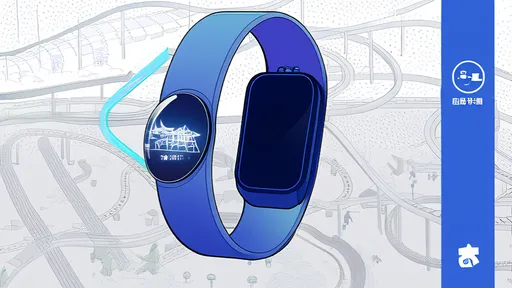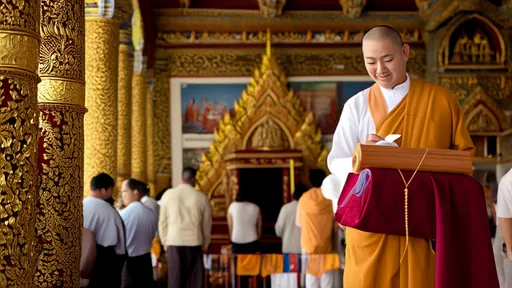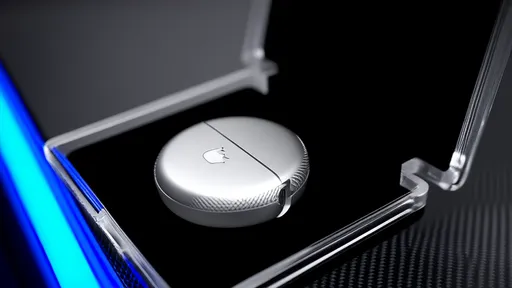When Apple introduced the AirTag in 2021, it was primarily marketed as a solution for tracking lost keys, wallets, or backpacks. However, frequent travelers quickly discovered an unintended yet brilliant application—using the tiny Bluetooth tracker to monitor checked luggage during flights. This practice has since sparked debates among aviation experts, privacy advocates, and everyday passengers about its effectiveness, legality, and ethical implications.
How AirTags Work in the Belly of a Plane
Unlike traditional GPS devices, AirTags rely on Apple’s vast Find My network, which uses Bluetooth signals from nearby Apple devices to pinpoint an item’s location. When placed inside checked luggage, an AirTag can transmit its location whenever it passes near an iPhone, iPad, or Mac—even if that device belongs to a stranger. This means travelers can theoretically track their bags in near real-time as they move through airports, onto planes, and eventually to baggage claim.
The technology shines in scenarios where airlines lose luggage—a frustratingly common occurrence. In 2022 alone, major U.S. airlines mishandled over 2 million bags. Passengers with AirTags in their suitcases often know their bag’s whereabouts before airline customer service does. There are countless stories of travelers directing airline staff to exact GPS coordinates of missing luggage, sometimes in airport storage rooms or even on wrong planes headed to different continents.
The Airline Industry’s Divided Stance
While no U.S. airline explicitly bans AirTags in checked luggage, international carriers have shown more hesitation. In 2022, Lufthansa briefly attempted to prohibit activated AirTags in checked bags, citing International Civil Aviation Organization (ICAO) regulations about transmitting radio signals. The policy reversal came days later after Apple clarified that AirTags comply with all aviation regulations—their Bluetooth signals fall well below any concerning thresholds.
Aviation security experts note that lithium battery concerns are largely irrelevant for AirTags, as their tiny batteries (under 1 gram of lithium) are exempt from dangerous goods regulations. The real tension lies in how tracking empowers passengers. Some airline employees reportedly dislike passengers showing up with precise location data, as it removes the plausible deniability during baggage handling delays.
Privacy Paradox in the Skies
The same crowdsourced network that makes AirTags effective for luggage tracking raises privacy questions when applied to air travel. Unlike personal items that generally stay with their owners, checked bags pass through many hands—baggage handlers, TSA agents, customs officials—who might unknowingly contribute to tracking via their Apple devices. While Apple designed anti-stalking features that alert non-owner iPhones to unwanted tracking, these safeguards don’t activate during normal luggage transit.
Legal scholars point out that while travelers have property rights over their bags, the workers handling them haven’t consented to participating in Apple’s tracking network. This creates a gray area where personal convenience potentially conflicts with worker privacy. Some labor unions have begun questioning whether constant passive tracking of baggage handlers constitutes workplace surveillance.
Technical Limitations at 30,000 Feet
Despite their usefulness, AirTags have blind spots in air travel. Over oceans or remote areas with few Apple devices, location updates become sporadic. The metal fuselage of planes also weakens Bluetooth signals. Savvy travelers note that the last location ping before takeoff and first ping after landing often provide the most valuable data, with hours of radio silence in between.
Battery life presents another consideration. While Apple promises up to a year of use, extreme cold in cargo holds can reduce battery efficiency. Seasoned AirTag users recommend replacing batteries before long trips and activating battery-saving mode by removing the plastic tab only upon departure.
The Future of Smart Luggage Tracking
As AirTags popularize luggage tracking, the travel industry is responding. Some premium luggage brands now include built-in tracker compartments, while startups offer FAA-compliant GPS alternatives with cellular connectivity. Airlines themselves are experimenting with RFID bag tags that provide similar tracking—though currently only accessible to staff, not passengers.
The lasting impact may be cultural rather than technological. Passengers accustomed to tracking their $30 AirTag-equipped suitcases increasingly question why airlines can’t provide equally precise tracking for $30 baggage fees. This expectation of transparency could drive the next wave of aviation logistics innovation, potentially making lost luggage as antiquated as paper tickets.
Whether viewed as a consumer empowerment tool or an accidental surveillance system, AirTags in checked luggage represent a fascinating case of technology repurposing. They’ve achieved what billion-dollar baggage handling systems couldn’t—giving passengers peace of mind through a $29 gadget. As with many digital age solutions, the convenience comes with strings attached, but for now, most travelers find the trade-off unquestionably worthwhile.

By /Jul 25, 2025

By /Jul 25, 2025

By /Jul 25, 2025

By /Jul 25, 2025

By /Jul 25, 2025

By /Jul 25, 2025

By /Jul 25, 2025

By /Jul 25, 2025

By /Jul 25, 2025

By /Jul 25, 2025

By /Jul 25, 2025

By /Jul 25, 2025

By /Jul 25, 2025

By /Jul 25, 2025

By /Jul 25, 2025

By /Jul 25, 2025

By /Jul 25, 2025

By /Jul 25, 2025

By /Jul 25, 2025

By /Jul 25, 2025